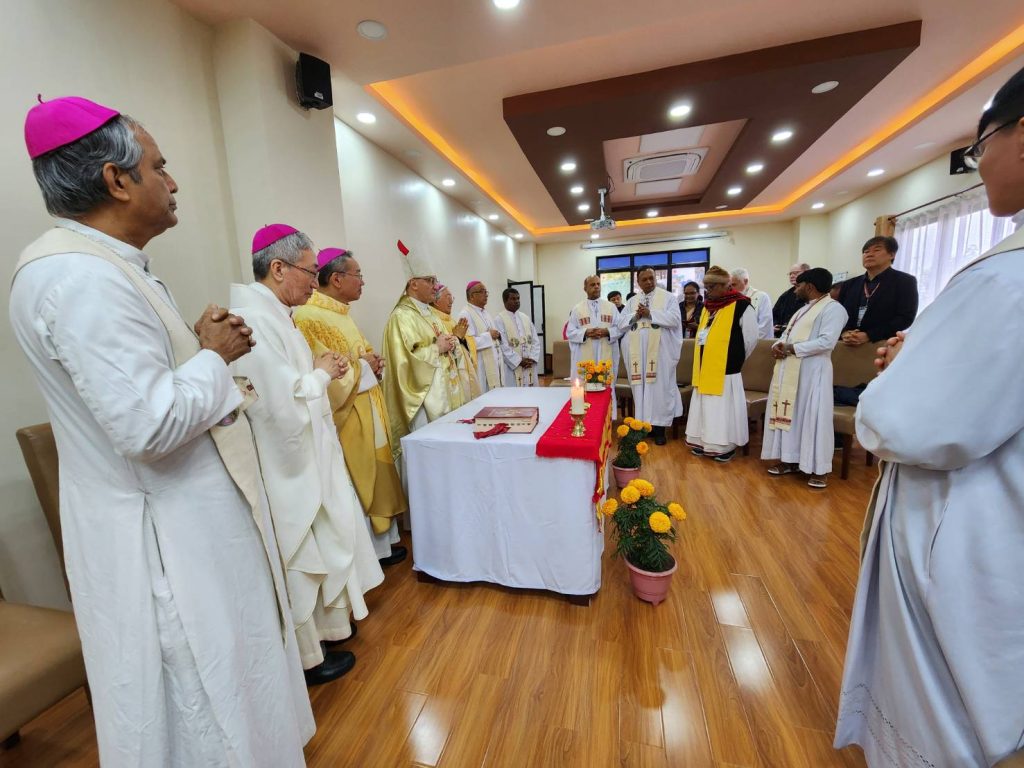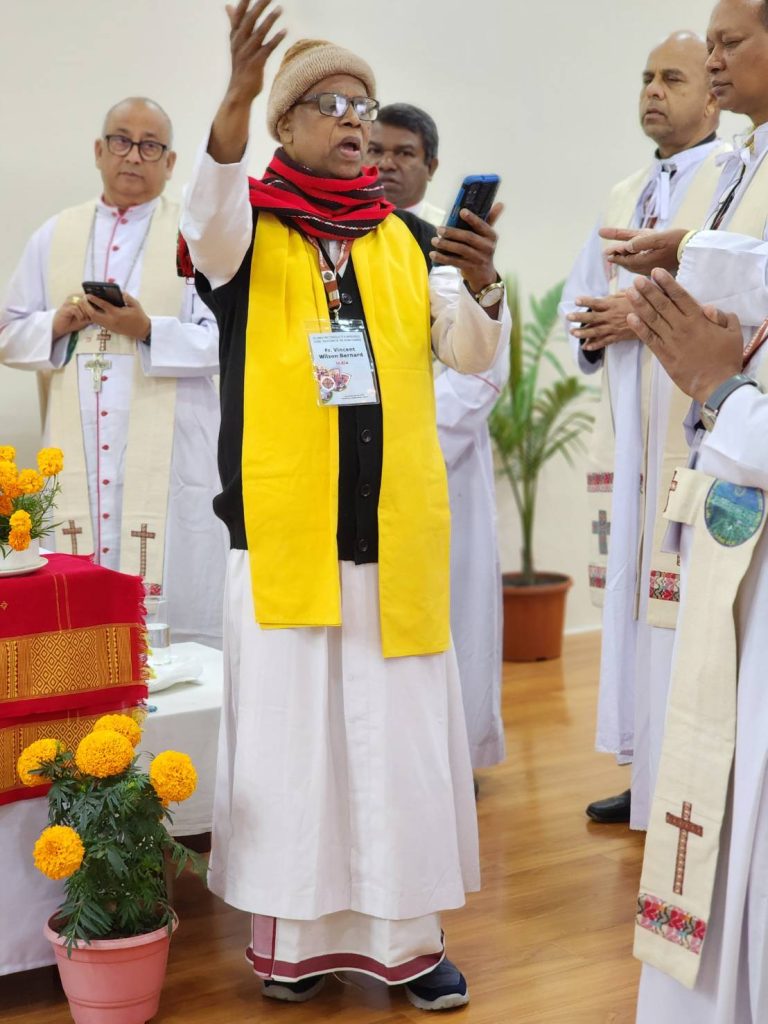On the occasion of the Asian Forum on
Celebrating Synodality and indigenous Living Traditions in the Asian Church
Dhulikhel, Nepal
Memorial of St. Albert the Great Friday, 15 November 2024, 7.00 am
Your Graces/ Your Lordships, Reverend Fathers, Reverend Sisters and my dear lay faithful,
I am truly glad to be present with you this morning on the occasion of the Asian Seminar of the Federation of the Asian Bishops Conferences (FABC). presently in progress here at Dhulikhel, Nepal and celebrate Holy Mass for you.
Today the Church celebrates the memorial of Dominican friar St. Albert the Great, Bishop and Doctor of the Church, He was one of the most remarkable scholars and theologians of the Middle Ages and is famous for being a teacher of Saint Thomas Aquinas. He was known for his efforts to show that reason and faith complement each other. He also encouraged Christians to explore and understand the natural world as a way of honouring God’s creation.

The first reading taken from the Back of Ecclesiasticus offers a reflection on wisdom and the blessings that come to those who seek and live by it. For those who revere the Lord and obey his Word (v. 1), wisdom becomes a close companion to them, “like a mother”, guiding, nurturing, and providing security. Having reverence to God creates the right attitude to receive wisdom. True satisfaction and joy are found not in material success but in aligning ourselves with God’s wisdom. When we live with integrity and stay rooted in biblical values, we find a fulfilment that the world cannot offer. Consequently. wisdom becomes a source of inner delight, bringing a sense of stability and peace to those who embrace her. As we grow in wisdom, we craw closer to God, the source of all goodness and truth.
In the Gospel passage taken from the Evangelist St. Matthew, Jesus spoke much about the Kingdom of God by using parables and a lot of imagery. And so, he compared the Kingdom of God i) to ‘a merchant who looked here and there for fine pearis” (Matt 13: 45), i) to “treasure hidden in a field, which someone found and hid’ (Matt 13:44); illy to ‘a tiny mustard seed, which someone tock and sowed it in the garden, and it grew and became a tree (Lk 13: 18-19); and iv).
In today’s Gospel, the Kingdom of God is compared to “a net that was thrown into the sea and caught fish of every kind” (Matt 13:47);
To the question asked by the Pharisees about the Kingdom of God, “Jesus responds quickly. the kingdom of God is not coming with signs to be observed” (Lk 17:20), but rather “the kingdom of God is in the midst of you” (Lk 17:21) Therefore, God’s Kingdom is at wark on earth whenever people live according to God’s love, justice, and peace. It is visible in acts of kindness, mercy, solidarity and community-building inspired by Christ.
Jesus announced his messianic calling, saying: The time is fulfilled, and the kingdom of God is at hand; repent and believe in the Gospel” (Mk 1:14-15; CT. ME 4:17, LK 4:43)

The Encyclical Letter Redemptoris missio of Pope John Paul Il explains that “the kingdom of God is meant for all humankind, and all people are called to become members of it” (Redemptoris Missio no 13). In this regard, also the Final Document of the recently concluded Synod affirmed: “Synodality is the walking together of Christians with Christ and tawards God’s Kingdom, in union with all humanity’ (Final Document, no. 28, 2 to 27 October 2024)
Indeed, Jesus invites all to enter the Kingdom by repenting and believing in the Gospel (Mk 1:15). To “enter” the Kingdom requires conversion, or a change of heart, turning away from sin, embracing a life modelled on Christ and embodying love for others.
In his recent Encyclical Letter Dilexit Nos, Pope Francis wrote that “Lave for our brothers and sisters is not simply the fruit of our own efforts; it demands the transformation of our selfish hearts” (Dilexit Nos no. 168) and he added that “By associating with the lowest ranks in society (cf. Mt 25: 31-46) “Jesus brought the great novelty of recognizing the dignity of every person, especially those who were considered ‘umworthy”
This new principle in human history – which emphasizes that individuals are even more worthy” of our respect and love when they are weak, scomed, or suffenng.. – has changed the face of the world” (Dilexit Nos no, 170). Today, as we are concluding the Asian Seminar on Celebrating Synodality and Indigenous Living Traditions in the Asian Church, let us pray for all the indigenous people who are “even more “worthy’ of our respect and love”.
Amen.